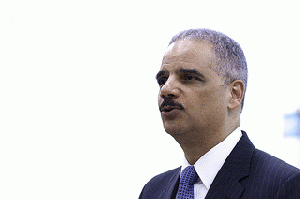Cross-posted from AlterNet
Yet, earlier this month, the Obama administration announced its proposal to waive some of the possible sanctions against Credit Suisse. The little-noticed waiver, which was outlined in the Federal Register, comes amid criticism that the Obama administration has gone too easy on major financial institutions that break the law.
In its announcement outlining the waiver, the Department of Labor notes that Credit Suisse "operated an illegal cross-border banking business that knowingly and willfully aided and assisted thousands of U.S. clients in opening and maintaining undeclared accounts" and in "using sham entities" to hide money.
The waiver proposal follows a larger pattern. In June, Bloomberg News reported that federal prosecutors have successfully pushed U.S. government agencies to allow Credit Suisse to avoid many regulatory sanctions that could have accompanied its criminal conviction.
"The New York Fed said last month that the bank can continue handling government securities as a so-called primary dealer," reported the news service. "The SEC let the firm continue as an investment adviser while the agency considers a permanent waiver."
Pensions and Investments magazine has reported that despite Department of Labor assurances of tough enforcement of its sanctions against convicted financial firms, the agency has "granted waivers for all 23 firms seeking individual waivers since 1997."
Critics say that by using such maneuvers, the Obama administration is effectively cementing a "too big to punish" doctrine. That criticism intensified in 2012 and 2013, when top Justice Department officials defended the administration's reluctance to prosecute banks by publicly declaring that the government considers the potential economic impact of such prosecutions.
Why is the Obama administration reducing sanctions on Credit Suisse? The administration says it is a decision based on pragmatism, not favoritism.
The Federal Register announcement, for instance, notes that Credit Suisse has assets of nearly $1 trillion, and argues that if the anti-criminal provisions were enforced, the bank would lose its ability to offer investment products to pension funds. The announcement also argues that the Credit Suisse entities that specifically conduct pension business "are independent of" and "not influenced by Credit Suisse AG's management and business activities."
What the administration did not mention, of course, is that according to data compiled by the Sunlight Foundation, employees of Credit Suisse have given President Obama's campaigns more than $376,000. That's particularly relevant in light of an April study of SEC data from London Business School professor Maria M. Correia.
Whatever the reason for the proposed waiver, one thing is for sure: The move contradicts the claim that "no financial institution, no matter its size or global reach, is above the law." Indeed, the Obama administration's waiver proposal suggests exactly the opposite.






